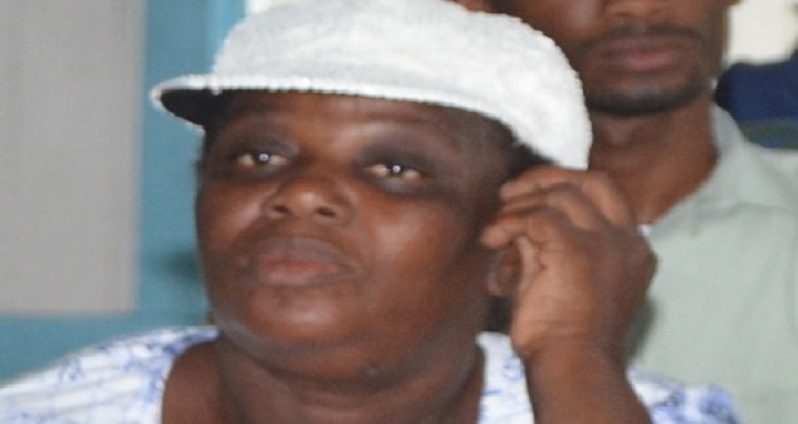By Ariana Gordon
RESIDENTS of the Region Six community of Light Town, East Bank Berbice are calling on the relevant authorities to help them access more potable water.There are approximately 80 persons living in the predominantly cash-crop farming community of Light Town, and Grethel Thomas told the Guyana Chronicle on Sunday that the situation in the community is progressively deteriorating because the current dry season is making things increasingly difficult for residents to take care of their farms.
“Drainage is a big problem for us.” Thomas said. “We don’t have any water, we have to depend on the river water, which is salty; and that is not good for the crops.”
Thomas noted that the dry season is wreaking havoc on their crops, and the twice weekly provision of water to the community from the Regional Office is not enough.
“The Region is sending a truck in here twice per week, and you have to put a barrel on the road…. They full it, and that’s it! One barrel of water has to last you for the entire week, until they return,” she told the Guyana Chronicle.
UNHEALTHY SITUATION
Thomas explained that when the water provided by the Regional Office is all used up, residents are sometimes forced to use water from the canal, a situation she describes as unhealthy.
“The (canal) water affects the skin, so we can’t depend on the canal water; we can only depend on this one barrel of water that they give you,” she explained.
Another Light Town resident, who asked to remain anonymous, told the Guyana Chronicle that while villagers understand the constraints in regard to providing water for the community, it would be helpful if the amount of water they get is increased.
“You see, if we could get li’l more water, it would go a long way. Remember, we living is farming,” she said, “and right now dem crops crying out for water. We can’t use the salt water, it is damaging we crops. All we want is more water.”
WORRIED SICK
Farmer Jermaine Thomas said he is worried about his farm. He has one and a half acres of land under watermelons, and a half-acre of land under cantaloupe. “I have no water to wet them right now,” he said. “Since I put them down, nothing striving.”
The 30-year-old father of three described the situation as stressful. He planted the watermelons and cantaloupes on December 15, and it has since not rained — a situation that is extremely distressing to him.
“There has been no rain here. Since we don’t get potable water here, we depend on the rain a lot. All the trenches are dry, and when we use water from the canal, the plants either die or are stunted,” he explained.
Thomas said his community has been without running water for about 12 years now. “It has been a good time; over twelve years we are depending on rain water…. They bring water for us, but it is not enough,” Thomas, who also rears poultry, said.
MASS MIGRATION
Unlike him, many of Light Town’s youths have migrated from the community because of the lack of such basic amenities as potable water, electricity, and proper roads.
Grethel Thomas, Jermaine’s mother, said that although the community is not large, it is becoming increasingly difficult for young people, in these modern times, to survive the daily challenges of living in Light Town. She said that after writing the National Grade 6 Assessment examinations, students are forced to travel 12 miles every day to get to the nearest secondary school, which is in New Amsterdam, as there is none nearby.
“There is one bus here; a man who works at GTT would take the schoolchildren to school every day. He charges them $200 one way,” she said.
She would love to see more of the community’s youths return and assist their families. “There are very few young people who stay here,” she said. “As soon as they get li’l average education, they leave. It is only farmers and the older folks who remain here.”
DEPLORABLE ROADS
Noting that the roads in the community are in a deplorable state, Grethel Thomas has called on the relevant authorities to assist the community by remedying the situation. “Right now it is loose brick, and (this is causing the environment to be) very dusty. It also has lots of pot holes.”
Light Town’s electricity issue, for the most part, was solved approximately one year ago when the St. Francis Community Developers and Food for the Poor Guyana Inc. provided the community with solar panels.
“Each home received a solar panel,” Thomas explained, adding that neighbouring communities also received solar panels. “Before we got those solar panels, we had no electricity; we would use lamps, and those who could afford would use generators,” she said.
The move to donate the solar panels, she explained, was a good one, as the schoolchildren are now in a better position to study at nights. “The schoolchildren now use it to study. Before we got them, we used to use what we call a flambeau; it is a lamp we make with bottles, and put oil and wick inside.”




.png)









